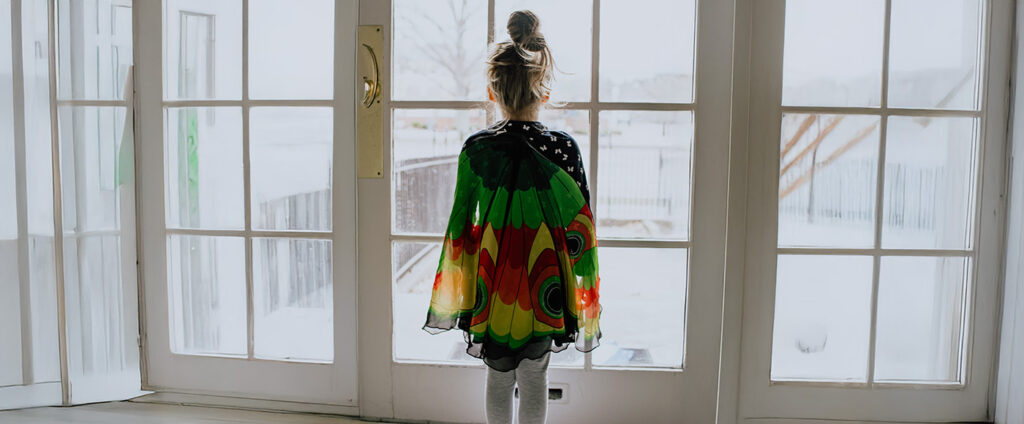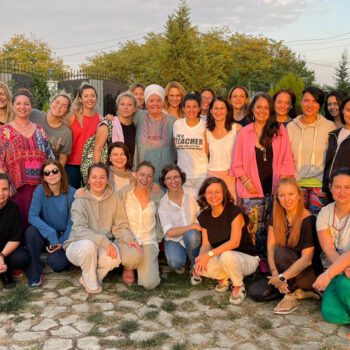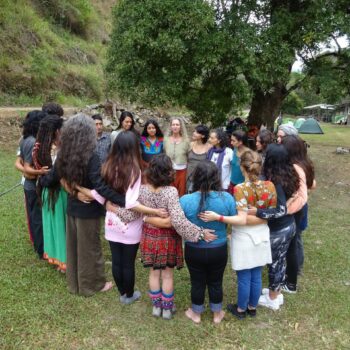Imagine an actor who plays a lifelong role and rarely gets a break. They become so immersed in their roles that they can no longer feel where the role ends and they begin. In reality, that’s most of us; we wear the coat, play the role, act the part, of what our families, society, and the world expects of us.
When we’re young, we sense which parts of us are acceptable and which are not—and we begin to reject the ones that aren’t. If having needs was a burden for our primary attachment figure, or if our needs were not met, we come to believe our needs are unimportant, that they don’t matter or are simply too much.

I surprised myself a couple of weeks ago when I slipped into that helpless state of a small child—just waiting for someone to ask how I was doing, waiting for someone to see me; asking for help felt like an enormous effort. I had a terrible flu, and for three nights I had shivers and a high fever. I saw myself in my grandmother’s room, in the same state, just waiting for someone to come and check on me.
My grandparents were mostly away, working in the fields. When it rained, snowed, or was too cold to work outside, they would stay in and do other things around the house. I would help however I could, or join them in the fields, since there was no one else to care for me at home when they had to go.
One day, I got sick. I could feel my body burning up. I wasn’t feeling well at all. I remember staying inside the entire day, just waiting for someone to notice my condition.
In the evenings, my grandmother would milk the cow, and I’d usually be there with her.That day, after I’d stayed in the house the entire day, she came to see me and asked if I would join her while she milked the cow. She knew I usually enjoyed being with her and asked why I had spent the whole day indoors. When she placed her hand on me, she realized I had a fever. It’s not that I thought she wouldn’t care for me—she always did her best—but I also knew that both she and my grandfather had a lot of hard work to do. Being unwell would have meant they needed to stop what they were doing to take care of me. I didn’t want to burden anyone, but deep down, I wanted to be seen and was waiting for someone to guess my needs, because expressing them felt too difficult. To this day it still is, sometimes.
Even though we’re no longer small children, those younger parts of us still show up, as if we’re reliving the same story over and over. When I realized I was in that child-like state of consciousness, I asked myself: what did my grandmother do when I was sick? I made myself some tea, took some medicine, and soaked my socks in vinegar to reduce the fever. After about half an hour, I started to feel a bit better.
Sometimes, it’s hard to even know what we need. Beyond Maslow’s hierarchy of needs—physiological, safety, love and belonging, esteem, and self-actualization—children also need to feel safe in their attachments, like they don’t have to work to maintain the relationship. As Gabor often says, we need to be mirrored, attuned to, and so on. But first, we need permission to have needs in the first place. Phrases like “You’re too needy,” “Not now,” or “I don’t have time for this” might sound familiar to many. When our needs are neither acknowledged nor met, we shut down those parts of ourselves and eventually lose touch with what we need altogether. But of course, our body knows.
Whenever there is discomfort, we can recognise it as a sign. Gabor says that whenever there is tension, it requires attention. And returning to the movie metaphor—ask yourself: which script are you still running? Could it be that it’s an old one that’s no longer serving you?



